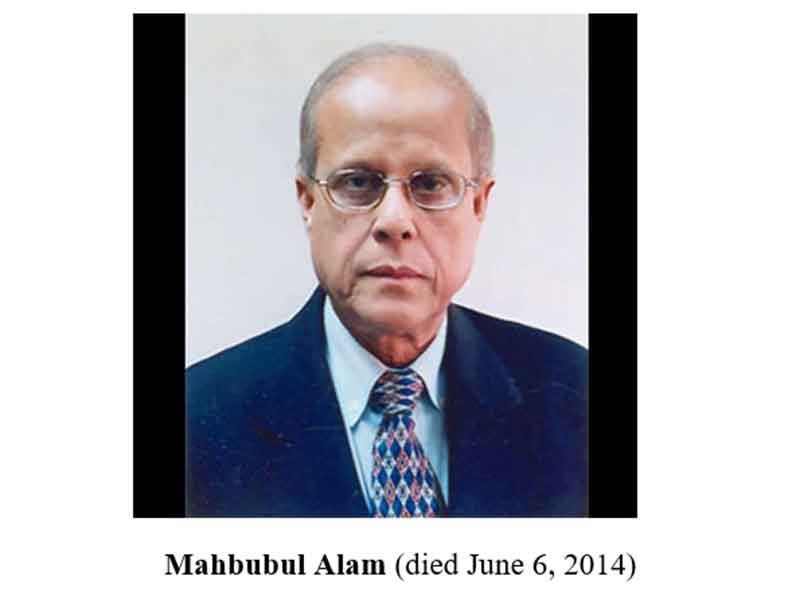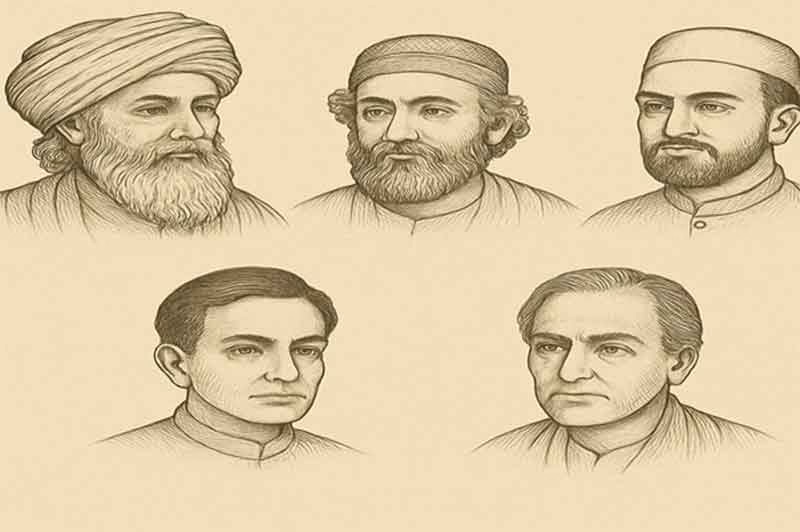Written By Al Mahmud
Recitation: Abdur Rahman
Translated by Zeenat Khan

Mir Abdus Shukur Al Mahmud (known as Al Mahmud; (11 July 1936 – 15 February 2019) was a Bangladeshi poet, novelist, and short-story writer. He is considered one of the greatest Bengali poets to have emerged in the 20th century.
_____________________________________________________________________________________
ফেব্রুয়ারির একুশ তারিখ
দুপুর বেলার অক্ত
বৃষ্টি নামে, বৃষ্টি কোথায় ?
বরকতের রক্ত।
February the twenty first
Around noon shall we say
Suddenly raindrops…raindrops? Nah.
(Shaheed) Barakat’s blood splatters.
হাজার যুগের সূর্যতাপে
জ্বলবে এমন লাল যে,
সেই লোহিতেই লাল হয়েছে
কৃষ্ণচূড়ার ডাল যে !
Scorching sunlight for a thousand eon
Burns an ecstatic red that
Turns the twigs of the Krishna Chura* tree
Into hues of burgundy blood-red and crimson
প্রভাতফেরীর মিছিল যাবে
ছড়াও ফুলের বন্যা
বিষাদগীতি গাইছে পথে
তিতুমীরের কন্যা।
Procession afoot at the light of dawn
Scatter the flowers to adorn (the path)
The silence torn with the elegiac song
In sorrow does Titumir’s** daughters mourn
চিনতে না কি সোনার ছেলে
ক্ষুদিরামকে চিনতে ?
রুদ্ধশ্বাসে প্রাণ দিলো যে
মুক্ত বাতাস কিনতে ?
A stranger to the golden son
The martyr Khudiram***?
Life forfeited body asphyxiated for
Freedom that we had exulted
পাহাড়তলীর মরণ চূড়ায়
ঝাঁপ দিল যে অগ্নি,
ফেব্রুয়ারির শোকের বসন
পরলো তারই ভগ্নী।
Took a fiery death plunge from the mountaintop
Fighter queen**** in distress
Adorned the sorrowful attire in February
One of her many sisters
প্রভাতফেরী, প্রভাতফেরী
আমায় নেবে সঙ্গে,
বাংলা আমার বচন, আমি
জন্মেছি এই বঙ্গে।
Prabhat Pheri Prabhat Pheri*****
Take me along Oh
Bengali on my tongue,
(I was) born in the Bango.
* Krishna Chura (The Royal Poinciana tree) is a flowering plant known for its beautiful blooms. They come in beautiful red, red-orange, burgundy, and bright yellow colors
** Titumir, a Bengali “Islamist Revolutionary, ” a nationalist, is a well-known figure in the Indian subcontinent. His name is heard in the context of the iconic Bamboo Fort and Wahabi movement, in Bengal, India. He led a rebellion against British Imperialism, their exploitation, as well as their corrupt cohorts such as the landlords and zamindars. His soldiers were primarily agricultural workers such as the poor peasants and farmers. Titumir gave his life in fighting the British in an effort to free the subcontinent from their unlawful occupation.
*** Khudiram Bose was one of Bengal’s youngest revolutionaries to die by hanging at the hands of the British. He was convicted for Throwing a bomb at the carriage of magistrate Douglas Kingsford, who was not in the carriage. Instead, two women were killed. Khudiram was executed on August 11, 1908, at the age of 18. A story has it that he accepted the judgement with a smile on his face.
**** Perhaps the poet Al Mahmud refers to the following – “In many cultures, mass-suicides have been used as a form of protest against foreign colonization. In India, the ritual of Jauhar was traditionally performed by upper caste Rajput women that immolated themselves by jumping into flames together.”
***** Dressed in Black and White, throngs of people taking early morning processions head for the Shaheed Minar (Monument built as a tribute to the martyrs of 1952 the Mother Language movement), carrying stunning garlands as they sing Amar Bhaier Rokte Rangano Ekushey February /Ami Ki Bhulite pari…

Language Martyrs’ Day is observed in Bangladesh on February 21
Dedication: Today, Bangladesh celebrates Ekushey February (21st), Language Martyrs’ Day. Through Prabhat Pheri, a traditional early morning procession — thousands take part in it to rejuvenate body, mind, and the spirit to pay homage to those who died in protecting Bangla Language in 1952 during the Language Movement. A sea of people go to the Central Shaheed Minar, located in Dhaka and elsewhere, to place flowers to remember their sacrifice and pay respect to these brave soldiers of the Language Movement. 21st February is also known as the International Mother Language Day.
Zeenat Khan writes short stories, nonfiction alongside opinion columns. In the recent months, she has been trying her hand on translations of Sachin Dev Burman, Rabindranath Tagore, and Kazi Nazrul Islam songs. This is her first translation of a poem that is accompanied by a beautiful recitation done by Abdur Rahman. She lives in Maryland, USA.












































